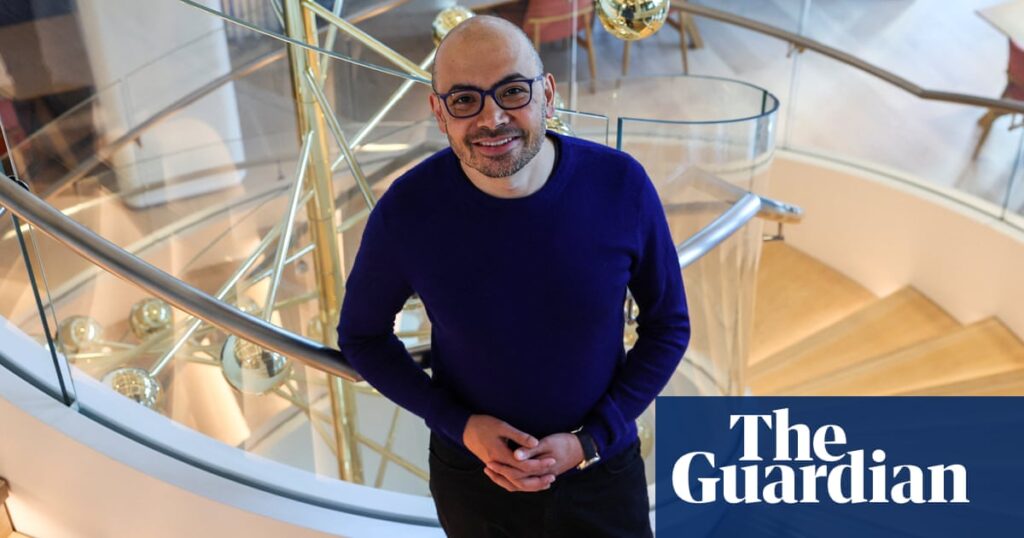Exploring the Transformative Power of AI in Science
There’s never been a better moment to dive into the world of artificial intelligence (AI), especially with the recent excitement surrounding the Nobel prizes in chemistry and physics, both awarded to innovations connected to AI. This coincidence set the stage for the AI for Science Forum held in London, organized by Google DeepMind and the Royal Society. With Google DeepMind recently claiming the Nobel in chemistry, following a win in physics for AI contributions, the atmosphere at the forum was electric.
Demis Hassabis, CEO of Google DeepMind, spoke passionately at the event about the current AI revolution, asserting that we might be on the brink of an unparalleled period of scientific discovery. "If we get it right, it should be an incredible new era of discovery and a new golden age, maybe even a kind of new renaissance," he remarked. However, he also cautioned that AI is not a panacea. Success in the field requires precisely identifying the right problems, gathering suitable data, and creating and utilizing the right algorithms.
Nonetheless, the potential pitfalls are concerning. Imagine a scenario where AI exacerbates wealth inequality, or worse, becomes a tool for devastating cyber-attacks or biological warfare. Siddhartha Mukherjee, a Columbia University cancer researcher, even speculated that we might face an "AI Fukushima" in our lifetimes, referencing the catastrophic 2011 nuclear accident in Japan.
On a brighter note, many researchers remain optimistic about AI’s capabilities. For example, in Nairobi, nurses are testing AI-assisted ultrasound scans that eliminate the need for extensive training, directly benefiting pregnant women. Meanwhile, the London startup Materiom is harnessing AI to create completely bio-based materials, steering clear of traditional petrochemical methods. AI has already made significant advancements in medical imaging, climate modeling, and even the complex task of nuclear fusion containment. The prospect of developing a virtual cell, essentially a unit of life in silicon, feels almost within reach.
The Nobel prize-winning program AlphaFold has already revolutionized how we predict protein structures and their interactions, an essential factor in drug design. Hassabis stated that researchers at Isomorphic, a Google DeepMind spin-off, are enhancing the algorithm further to speed up drug development. They’re hopeful that one day, what used to take years or decades might shrink to months or mere weeks.
Pharmaceutical giant Novartis is applying AI innovations to streamline clinical trial recruitments, compressing timelines that once took years into just months. Fiona Marshall, their president of biomedical research, shared that AI can also assist with regulatory queries, predicting the best answers to facilitate drug approval processes.
Jennifer Doudna, a Nobel laureate for her work on the gene-editing tool Crispr, emphasized AI’s crucial role in potentially making therapies more affordable. With the first Crispr treatment costing a staggering $2 million per patient, there’s a pressing need for AI-driven innovations that could enable breakthroughs like methane-free cows through microbial modifications.
Yet, one of AI’s significant hurdles remains the "black box" issue—where AIs can make decisions but can’t easily explain them. Hassabis is optimistic that this could change within the next five years as researchers develop methods akin to "brain scans" for AI.
That said, the climate crisis poses a formidable challenge to the true potential of AI. Despite its promise in forecasting natural disasters like floods and wildfires, the energy consumption of major tech firms, including Google, is substantial. Training a single large language model, such as OpenAI’s ChatGPT, can consume enough energy to power 1,000 US homes for an entire year.
Hassabis remains hopeful, arguing that the advantages of AI may outweigh its energy demands. He envisions AI contributing to the development of new batteries, room-temperature superconductors, and even nuclear fusion, potentially transforming our approach to climate challenges.
Yet not everyone shares his enthusiasm. Asmeret Asefaw Berhe, a former head of the US Department of Energy’s Office of Science, expressed skepticism regarding whether AI’s advancements would lead to real sustainability. She called for more ambitious goals and cautioned that while investments in renewable energy are necessary, they might not be sufficient on their own.
In summary, we’re witnessing an era rife with potential and peril as AI continues to advance in science. From revolutionizing drug development to transforming material science, the road ahead is filled with promise—but it also demands vigilance to avoid the shadows of misuse and inequality.
The AI Buzz Hub team is excited to see where these breakthroughs take us. Want to stay in the loop on all things AI? Subscribe to our newsletter or share this article with your fellow enthusiasts.




